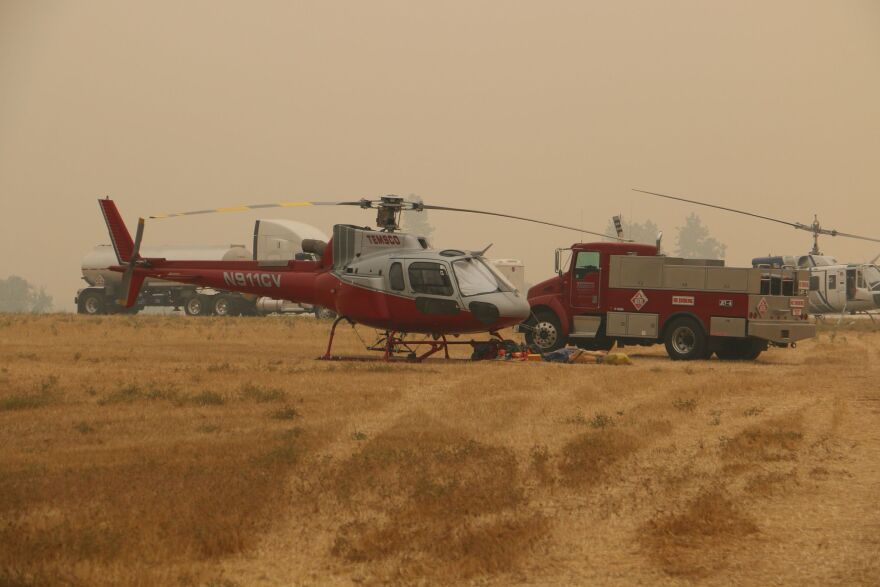Climate change has created hotter and drier conditions, which in turn have made wildfires larger and more intense. As KLCC’s Brian Bull reports, a new forest plan addresses those factors.
The Rogue River-Siskiyou National Forest Plan aims to thin out dense forest areas while increasing the number of oak and pine trees, which are more fire-resistant than Douglas Fir.

“There’s a lot of research supporting climate adaptation, especially in our lower elevations,” says Brett Brown, the district’s Fire Ecologist.
“And looking at creating more resilient conditions, with the understanding that it’ll likely be warmer and drier in the future, much like we’re seeing now.”
The plan also involves 5,000 acres of prescribed fire, and using fire for maintaining 13,000 acres of previously burned areas.
“Access is difficult. Putting people on steep slopes for thinning is difficult,” says Don Boucher, District Stewardship Coordinator. “We think burning is appropriate treatment to bring these back into resilient condition.”

The plan also proposes creating 18 miles of hiking trails, and four miles of off-highway vehicle trails.
Donna Mickley, Siskiyou Mountains District Ranger, says this follows 15 meetings with stakeholders and the public.
“That was really so they would have some ownership, and we were sure that we understood and we developed this together,” Mickley tells KLCC.

“What kind of treatments did we want to do, in what kind of areas? And that’s where recreation came out as being important, both motorized and non-motorized, as well as thinning the forest and reducing the risk of fire.”
The plan is a mix of commercial logging and brush removal on 22,000 acres of lands maintained by the Bureau of Land Management and the U.S. Forest Service.
A 30-day public comment period began today (11/21/18).
If enacted, the plan could be implemented next summer.
Copyright 2018, KLCC.




